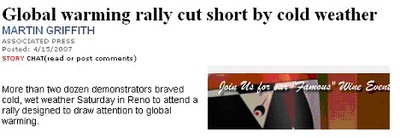Last week the Inver Grove Heights City Council met to hear from the public regarding a new property maintenance ordinance aimed at instituting certain appearance, maintenance and lawn-care standards for private homes. As with many laws, especially those regarding private property, this ordinance wasn’t aimed at defining or protecting an owner’s property rights, but at criminalizing poor or indifferent citizenship. Of course, it’s all for a good cause: “It’s for the children,” one of the proponents said.
Apparently, it’s more harmful for children to see a messy yard than it is for them to see adults taking their neighbors to court to resolve a problem instead of pitching in to help.
As a property-owner I know how discouraging and aggravating it can be to share a neighborhood — or even a property-line — with an “eye-sore” home and lot. I am much more concerned, however, with the ever-increasing encroachments on property rights, typically in the name of “doing good.” From Kelo, to smoking bans, to how high you let the grass grow, it’s an ever-expanding power-grab passed off as being for the common good without any real examination of how much good — or how much harm — is actually being done. (On a side-note, I heard one news-reader on KFAN this a.m. referring to the new state-wide smoking ban in bars and restaurants, say the ban “does not apply to private homes at this time” — suggesting, what?)
In this particular case, this issue for me is not just a legal or conservative one about rights and what you can get people to go along with, it is a moral and Biblical one as well. Usually it seems that if you raise a moral issue these days it’s assumed that you want to impose some narrow-minded “thou shalt not” on other people. In this case the “thou shalt nots” being imposed are coming from the larger public and what’s being missed is the “thou shall” Biblical instruction. You know, the one that “thou shall love thy neighbor as thyself.” Note, that doesn’t say “love they neighbor only if thy neighbor is a believer,” nor does it say “if you are a believer, thou shall love thy neighbor.”
What if that neighbor with the dilapidated house or junky yard is someone struggling just to make ends meet and can’t afford to make the improvements to the paint or siding that the community deems to be necessary? What if that neighbor is working two or three jobs and might skip mowing the lawn from time to time? What if your neighbors are an elderly couple who don’t have the physical, let alone financial, resources to maintain the property but are trying to live independently? Shall we just have our pubic servants, the police, march up to the door and slap a citation on it? Certainly it would be “legal.” Or, alternatively, shall we walk up to the door in person, knock on it and say, “Hi, you may not know me but I’m your next-door neighbor and I was wondering if there was something I could do to help?”
Ok, so what if that neighbor is a lazy bum who’s perfectly capable of maintaining his house or yard, or is someone who just likes to use old washing machines as lawn statuary? Well, it could be that your offer might not be well-received, or that your neighbor might think that you’re the nutjob. But if a succession of people approached him or her over time and offered to help (as opposed to demanding that he or she “straighten up”) what effect could that have? The neighbor would know that people are paying attention, that they care about the neighborhood and their property values, and that they’re willing to try to help first rather than condemn. He may not change his attitude completely but he may be motivated to try to make some improvements (even grudgingly) or even accept an offer of help. Which approach do you think ultimately contributes to a better neighborhood?
If that is starting to sound like a good idea to you, but you’re thinking, “yeah, why can’t the government do something to help that guy?” then you’re still missing the point. A lot of the problems we’re facing in our communities come from the fact that we’ve allocated to the government the responsibility of looking out for the well-being of those around us, of loving our neighbors. Sure, we mean to “do good” by passing new laws and taxes but we’re merely passing off our personal responsibility to do good to another, impersonal (and usually less efficient) entity.
Now it could be that your neighbor is a loser with no conscience or sense of shame who will readily accept help from you and your neighbor and just sit back and figure someone will always bail him out and never lift a finger himself. There’s certainly precedent for that happening when the help comes from a faceless government, but may not be so common when there are real faces involved. It’s worth a try at least to see if you can make a difference, and if someone is totally resistant or irresponsible there are other Biblical examples of how to deal with an unrepentent individual (and no, they don’t involve stoning — I’m thinking Matthew 18:15-17).
Furthermore, do we know how many people might fall into this latter category, and might it be worthwhile to figure it out before writing an ordinance or passing a law? At the Inver Grove Heights meeting, one person asked the Council how many complaints had been filed regarding nuisance properties. The answer was 160. The questioner then asked how many private homes were in Inver Grove Heights. The Council and the proponents of the ordinance didn’t know.
How many of the complaints referred to the same property? They didn’t know.
How many complaints had been filed by the same person? They didn’t know.
For the time being, the Council has decided to proceed with a stripped down version of the ordinance that regulates junk, open storage, woodpiles and similar eyesores but not the outside condition of houses and other buildings. It was much less than ordinance proponents were hoping for, and the issue is still alive. A second reading of the ordinance is scheduled for the next Council meeting on October 8.













